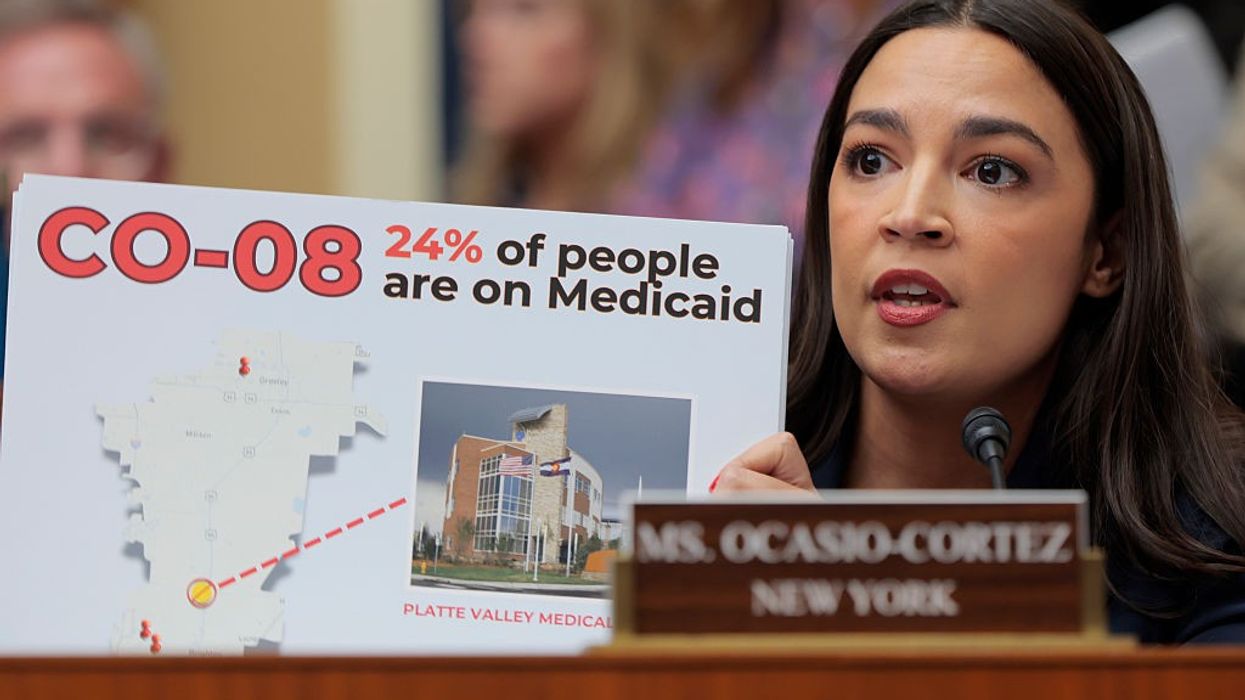April, 01 2009, 02:01pm EDT

Drug-Induced Dementia and Delirium Common in Seniors But Often Undetected, Public Citizen Says
Condition Is Usually Reversible, Can Be Caused by 136 Drugs Listed on WorstPills.org
WASHINGTON
Older patients become more susceptible to drug-induced dementia and
delirium as they age, but the symptoms are often overlooked by doctors
who don't realize that the condition may be caused by drugs and
reversed, Public Citizen writes in a Worst Pills, Best Pills News article released today on WorstPills.org, the organization's drug safety Web site.
Unlike most forms of dementia, such as Alzheimer's disease, which
cannot be reversed, dementia caused by prescription drug use may be
stopped by discontinuing the offending medication. The drug safety
experts at Public Citizen have identified 136 commonly prescribed
medications, especially certain antidepressants and pain medications,
that can cause difficulty thinking.
Drug-induced dementia and delirium are commonly misattributed to
underlying medical illness or merely to "old age." But by stopping or
modifying the dosage of numerous, frequently prescribed drugs, most
patients can be restored to a pre-drug state of mental clarity.
Older people are more susceptible to drug-induced delirium and
dementia because the body's ability to rid itself of drugs decreases
with age, often because of normal age-related decrease in kidney and
liver function. Also, older patients are often prescribed multiple
drugs at the same time, resulting in complicated interactions and
enhanced side effects. Some research also suggests older patients'
brains may be more sensitive to drugs' effects on the central nervous
system.
"Sadly, doctors don't always recognize cognitive impairment as a
side effect, so many patients needlessly suffer from this debilitating
but reversible condition," said Sidney Wolfe, M.D., director of Public
Citizen's Health Research Group and acting Public Citizen president.
"After beginning new drugs, doctors, patients and their families should
watch for subtle changes in cognition and assume changes may be caused
by drug therapy. People already suffering from some cognitive
impairment are most susceptible."
Delirium is a syndrome of changes in vision, hearing and thinking
that usually starts abruptly and is commonly seen in the hospital
setting or during an acute illness; symptoms typically improve when the
cause is treated. Dementia, on the other hand, is a chronic alteration
in thinking that progresses slowly. Alzheimer's disease is dementia's
most common cause, but it also can be caused by strokes and other
conditions.
WorstPills.org includes the
full list of 136 implicated drugs. Some examples include: widely used
antihistamines such as diphenhydramine (Benedryl); a drug widely used
for treating urinary incontinence, tolteridine (Detrol); a nausea
treatment drug, metoclopramide (Reglan); and drugs in the
benzodiazepine category such as popular sleeping pills Ambien
(zolpidem) and Lunesta (eszopiclone).
Worst Pills, Best Pills News is a monthly newsletter available in print and electronic formats through Public Citizen's subscription Web site, . The article about drug-induced dementia and delirium will be available free for the next seven days. The site has other searchable information about the uses, risks and side effects associated with prescription medications.
WorstPills.org is an
unbiased analysis of information from a variety of sources, including
well-regarded medical journals and unpublished data obtained from the
Food and Drug Administration, that allows Public Citizen to sound the
alarm about potentially dangerous drugs long before they are banned by
the federal government and to recommend safer drugs. For example,
Public Citizen warned consumers about the dangers of Vioxx, ephedra,
Baycol and Propulsid years before they were pulled from the market.
Public Citizen is a nonprofit consumer advocacy organization that champions the public interest in the halls of power. We defend democracy, resist corporate power and work to ensure that government works for the people - not for big corporations. Founded in 1971, we now have 500,000 members and supporters throughout the country.
(202) 588-1000LATEST NEWS
63% of US Voters Oppose Attack on Venezuela as Trump's March to War Accelerates
The new poll comes as the US president openly plots to seize Venezuela’s oil supply.
Dec 18, 2025
President Donald Trump has taken increasingly aggressive actions against Venezuela in recent weeks, but a new poll released Wednesday shows US voters are not on board with a new war.
A new poll from Quinnipiac University found that 63% of voters oppose military operations inside Venezuela, with just 25% registering support.
What's more, a US military strike in Venezuela would draw significant opposition even from Republican voters, 33% of whom told Quinnipiac that they would oppose such an action. Eighty-nine percent of Democratic voters and 68% of independent voters said they were opposed to a US military campaign in Venezuela.
Trump's policy of bombing suspected drug trafficking boats in international waters, which many legal experts consider to be acts of murder, drew significantly less opposition in the new survey than a prospective attack on Venezuela, but it is still unpopular, with 42% in favor and 53% opposed.
A potential war is also unpopular with Venezuelans, as a recent survey from Caracas-based pollster Datanalisis found 55% opposed to a foreign military attack on their nation, with 23% in favor.
The Trump administration's boat strikes, which have now killed at least 99 people, have been just one aspect of its campaign of military aggression against Venezuela. The US military last week seized a Venezuelan oil tanker, and Trump has said that it's only a matter of time before the military launches strikes against targets inside the country.
Trump on Wednesday also said that one goal of his campaign against Venezuela would be to seize the country's oil supply.
“Getting land, oil rights, whatever we had—they took it away because we had a president that maybe wasn’t watching,” Trump said while talking to reporters. “But they’re not gonna do that. We want it back. They took our oil rights. We had a lot of oil there. They threw our companies out. And we want it back."
Venezuela first nationalized its oil industry in 1976, and the US has no legitimate claim to the nation's petroleum supply.
Keep ReadingShow Less
AOC Dismisses Premature 2028 Polls, But Says ‘I Would Stomp’ JD Vance
A survey this week showed the congresswoman leading the vice president 51-49 in a hypothetical presidential matchup.
Dec 18, 2025
Rep. Alexandria Ocasio-Cortez gave a cheeky reaction after a poll suggested that she'd slightly edge out Vice President JD Vance in a hypothetical presidential election in 2028.
The survey of over 1,500 registered voters, published Wednesday by The Argument/Verasight, showed Ocasio-Cortez (D-NY) leading Vance 51-49 and winning back several key voting demographics that propelled Trump's return to the White House last year.
As she walked out of the Capitol building Wednesday evening, the Bronx congresswoman was asked about the poll by Pablo Manríquez, the editor of Migrant Insider.
She responded to the question with a laugh: "These polls three years out, they are what they are. But, let the record show I would stomp him! I would stomp him!" she said before getting into her car.
Neither Ocasio-Cortez nor Vance has officially announced a presidential run. But Vance is considered by many to be a natural successor to President Donald Trump. The president and his allies have suggested he could run for an unconstitutional third term.
Ocasio-Cortez, meanwhile, is reportedly mulling either a presidential run or a bid to take down the increasingly unpopular Senate Minority Leader Chuck Schumer (D-NY).
More than two years out from a Democratic primary, Ocasio-Cortez is considered a likely choice to fill the progressive lane in 2028, with support for increasingly popular, affordability-focused policies, including Medicare for All.
However, despite her strong support among young voters, early polls show her behind California Gov. Gavin Newsom and former Vice President Kamala Harris for the Democratic nomination.
Wednesday's poll showed that in a hypothetical contest against Vance, Newsom had a 53% to 47% edge, a margin only slightly larger than Ocasio-Cortez's.
Keep ReadingShow Less
4 More Killed in Pacific Boat Strike as White House Ramps Up Demands for Venezuelan Oil
President Donald Trump “wants to keep on blowing boats up until Venezuelan President Nicolás Maduro cries uncle," said White House Chief of Staff Susie Wiles in a recent interview.
Dec 18, 2025
Hours after US House Republicans voted down a war powers resolution Wednesday aimed stopping the Trump administration from continuing its attacks on "presidentially designated" terrorist organizations, the death toll of the Pentagon's continued boat strikes was brought to 99 with the latest bombing in the Pacific Ocean.
US Southern Command reported Wednesday night that at the direction of Secretary of Defense Pete Hegseth, the military had killed four people in a "kinetic strike on a vessel operated by a Designated Terrorist Organization in international waters."
As with the rest of the more than two dozen bombings that the administration has carried out in the Caribbean and Pacific since September, the Pentagon said that intelligence had confirmed the boat was "engaged in narco-trafficking operations."
The White House has not released evidence that the boats it's targeted were carrying drugs. In the past, the US military has been involved in intercepting vessels suspected of drug trafficking and charging passengers with a criminal offense, but President Donald Trump has insisted the US is engaged in an armed conflict with drug cartels in the Western Hemisphere, including in Venezuela.
US and international intelligence agencies have not found Venezuela to be a significant source of drugs flowing into the US and have found the country to play virtually no role in the trafficking of fentanyl, the biggest cause of drug overdoses in the US.
The latest boat bombing came a day after Trump announced a "total and complete blockade" on oil tankers approaching and leaving Venezuela, accusing the country of stealing "Oil, Land, and other Assets" from the US.
Venezuela nationalized its petroleum sector in 1976, taking control of its own vast oil reserves. Previously, US-based companies had largely controlled the country's oil industry. In 2007, then-President Hugo Chavez further pushed out US oil giants such as Exxon Mobil when he nationalized foreign oil projects in Venezuela.
Stephen Miller, a top adviser to Trump, accused Venezuela's government of "theft" on Wednesday.
“American sweat, ingenuity, and toil created the oil industry in Venezuela,” Miller said in a social media post. “Its tyrannical expropriation was the largest recorded theft of American wealth and property. These pillaged assets were then used to fund terrorism and flood our streets with killers, mercenaries, and drugs.”
Regarding the blockade, Trump also said Wednesday that Venezuela "illegally took" US energy rights.
While the administration has insisted for months that its deadly boat strikes are aimed at stopping drug trafficking, comments from White House Chief of Staff Susie Wiles in an extensive Vanity Fair interview released Tuesday further confirmed that the White House aims to take control of the South American country.
Trump “wants to keep on blowing boats up until Venezuelan President Nicolás Maduro cries uncle," said Wiles.
Brian Finucane, senior adviser at the International Crisis Group, said Wednesday night's boat strike amounted to "more premeditated killing outside of armed conflict."
"There's a word for that," he said.
Legal experts have said the repeated, lethal bombings of boats have been part of a campaign of extrajudicial killings and have warned Hegseth and others involved in the attacks could be liable for murder.
Keep ReadingShow Less
Most Popular


